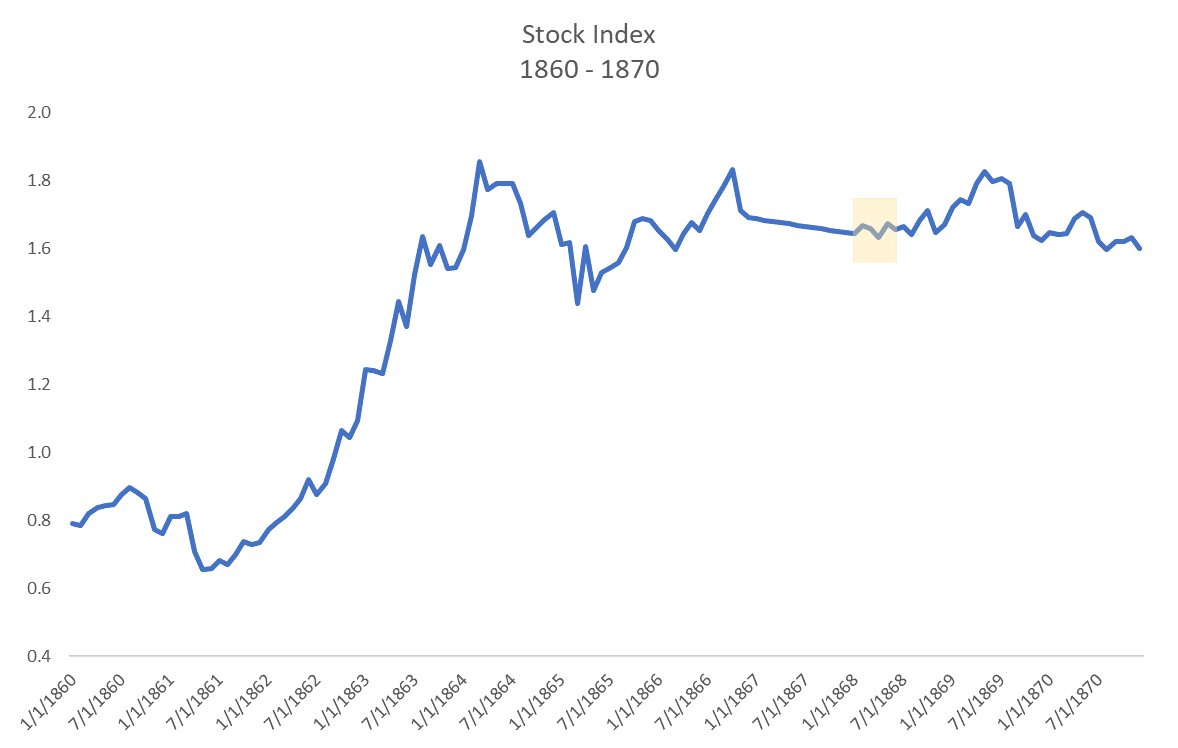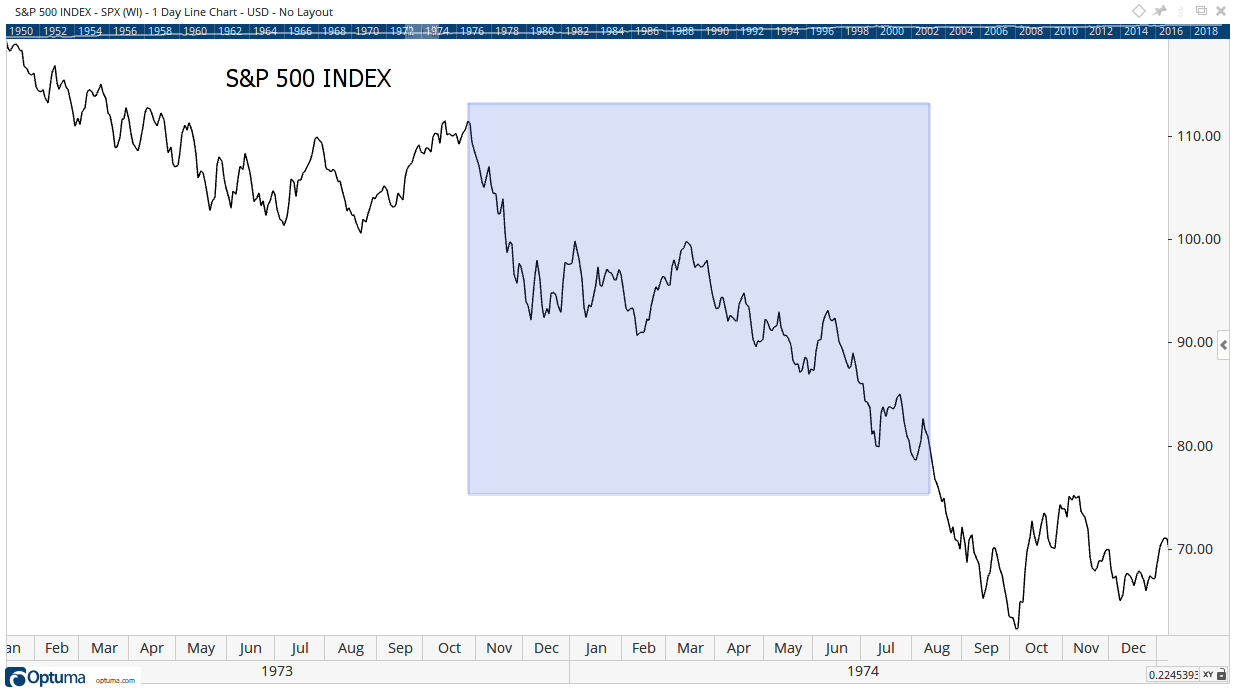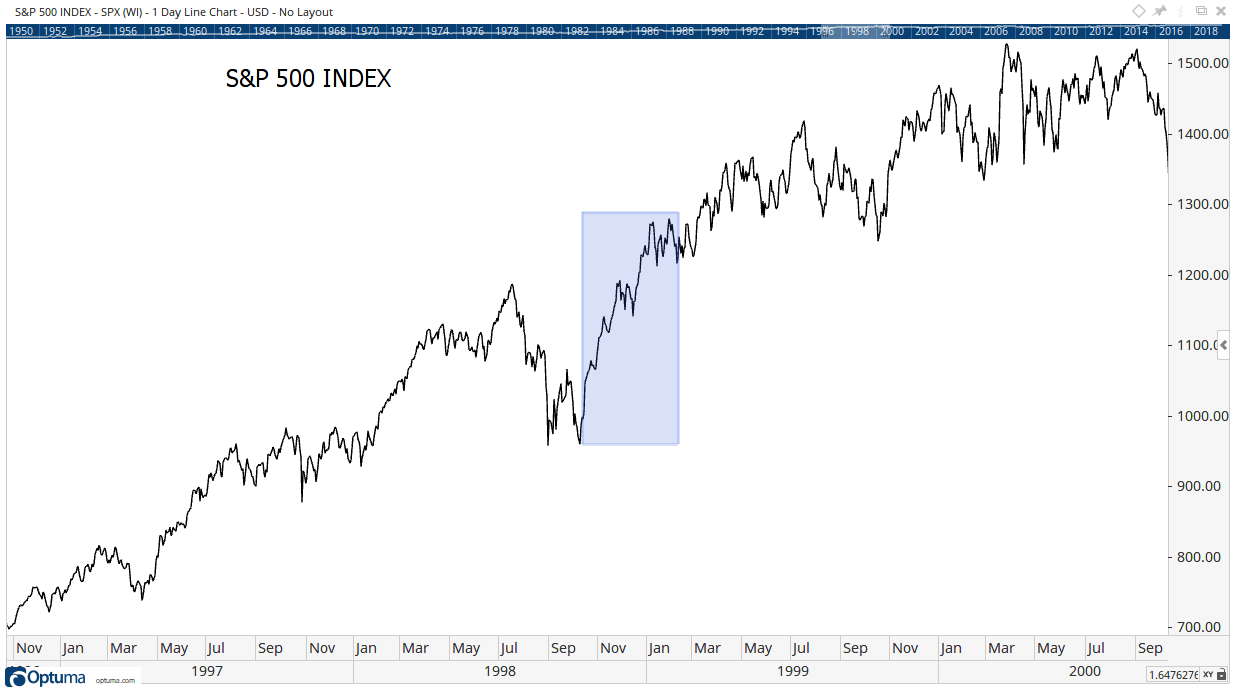- There’s likely to be an impeachment trial in the Senate for just the third time in history.
- There are three historical examples of impeachment we can look back at.
- Skeptics might say the sample size is too small. But these three instances tell us quite a bit.
Editor’s Note:
Trump has been impeached.
Yesterday, the House voted to impeach the President of the United States for the third time in 231 years.
I let you know what this would mean late last month — it wouldn’t disrupt the market’s trend.
And nothing has changed that prediction.
Volatility is up, as we expected.
The average daily range of the S&P 500, a measure of volatility, increased 29.6% over the past three weeks.
Volatility will likely remain high for the next few weeks.
But the trend remains up. So I urge you not to panic.
Read below to hear more on why.
Regards,
Michael Carr
Impeachment has been a constant political theme of the past 40 years. The last six administrations faced this threat.
Members of the House of Representatives introduced bills to impeach every president since Ronald Reagan. This is a recent idea. Impeachment threats affected just six of the first 36 presidents.
Right now, hearings are underway. There’s likely to be a trial in the Senate for just the third time in history.
This will create headlines for months. Political junkies will enjoy the news.
As investors, we can ignore impeachment.
That’s because it doesn’t affect the stock market the way you may think.
Impeachment No. 1: Andrew Johnson
The first impeachment trial was in 1868. That was pure politics.
Congress passed a law saying presidents couldn’t fire their appointees without Senate approval. Later, the Supreme Court ruled the law unconstitutional.
Congress likely knew the law was flawed when they passed it. Its purpose was to entrap President Andrew Johnson. He ignored this law, and impeachment followed.
Stocks didn’t react much to the news in Washington, D.C. Johnson’s impeachment is highlighted by a yellow rectangle in the following chart.
Andrew Johnson’s Impeachment

This data is from a 2000 paper: A New Historical Database for the NYSE 1815 to 1925: Performance and Predictability.
Johnson’s impeachment came a few years after the Civil War, and the national mood was dour. Impeachment was a result of partisanship and was a minor drama in a tumultuous era.
Impeachment No. 2: Richard Nixon
The next impeachment to reach this level was President Richard Nixon’s. Although Nixon resigned before trial, the charges were serious and would have led to his removal from office.
Once again, impeachment came during tumultuous times.
In October 1973, OPEC announced an oil embargo. The embargo targeted nations that supported Israel during the Yom Kippur War — primarily Canada, Japan, the Netherlands, the United Kingdom and the United States.
This was also the month the House of Representatives began considering impeachment.
Inflation rose sharply and economic growth slowed. The embargo ended in March 1974. By that time, the price of oil had increased from about $3 a barrel to $12.
Nixon resigned five months later. The chart below shows that stocks declined during this time.
Richard Nixon’s Impeachment

Stocks were in a downtrend when Nixon’s impeachment began. It’s likely political problems added to the bad economic news.
Impeachment No. 3: Bill Clinton
Not all impeachments occurred in bad times. President Bill Clinton’s occurred during a bull market.
Bill Clinton’s Impeachment

In the summer of 1998, a financial crisis roiled Asia, and Russia defaulted on government bonds.
Impeachment proceedings began, then stocks soared as the financial crisis ended. Traders seemed to ignore the news out of Washington.
A Look at Today
We only have three examples of impeachment. Skeptics might say the sample size is too small to be meaningful. But small sample sizes are useful.
Think about going for a walk in your neighborhood.
You turn right at the corner, and a large, snarling dog greets you. The same thing happens the next two days.
Now you have a sample size of three.
Some might argue that’s small and statistically insignificant. But on day 4, you’d probably turn left.
With impeachment, three instances tell us quite a bit.
Johnson’s and Nixon’s impeachments were minor sideshows in times of economic crisis. Clinton’s came as the economy boomed.
In the past, the economy has been more important than political news.
As President Donald Trump faces impeachment, stocks are in an uptrend.
The economy is strong, with the lowest unemployment rate in 50 years. Inflation remains low.
Based on history, I expect traders to ignore impeachment. Economic news and earnings trends are more important.
Regards,

Editor, Peak Velocity Trader
P.S. All of the trades in my Peak Velocity Trader service are mathematically engineered and coded with three levels of safety checks to give you the opportunity to turn every $10,000 invested into $77,300 over the course of just one year. To find out more, click here.


![[UPDATE] Ignore Trump’s Impeachment — History Says THIS Really Matters](https://banyanhill.com/wp-content/uploads/2019/11/shutterstock_1529910779-440x264.jpg)







